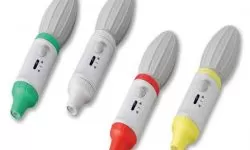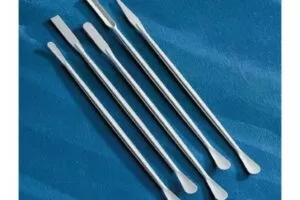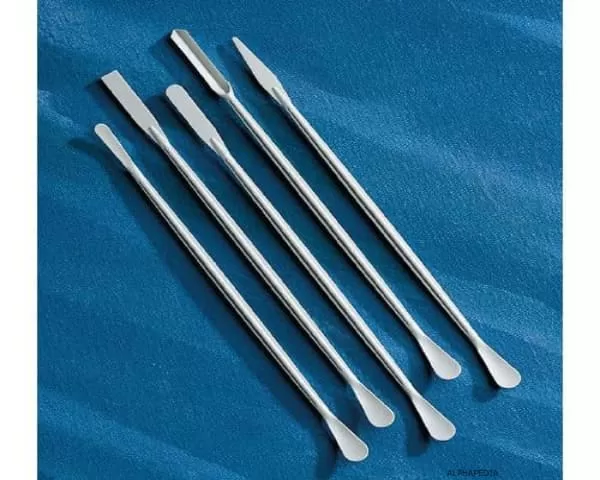Purposes and Uses of the Laboratory Spatula
The spatulas have different purposes within a laboratory. We will develop their uses and applications:
- The spatula is a fundamental tool in a laboratory. Thanks to its diverse and useful uses, it has become a strong ally for personnel working in the environment of laboratories and chemical projects.
- The spatulas are used to measure solids, move objects and scrape material from beakers. The spatulas can also be used for more purposes, including sleeves and weights.
- The spatulas used in laboratories are not the same type as those found in an everyday kitchen. These spatulas are usually made of metal with a smaller spatula end and the other end is more tapered to access smaller areas.
- You may also see spatulas that have a wooden handle and a wider piece of metal.
- Micro spatulas are also used in laboratory environments.
- These are very similar to the normal spatula but smaller as the name suggests. The equipment can also be used to shake and mix compounds in small containers.
- The stainless steel and nickel spatulas are particularly versatile, especially when coated with polypropylene, and have excellent thermal and chemical resistance. Laboratory spatulas can be sterile, non-sterile or single-use.
- The spatulas are also used to transport and distribute dry chemical compounds during chemical analysis. They are used when weighing chemicals on a balance because they allow users to collect extremely small quantities.
A micro spatula, which is a portable device, is used in chemical laboratories to turn, cut and spread substances during chemical analyses.
- A typical primary blade measures 30 x 60 millimeters. The other end has a blade with the same dimensions, but has a slight upward curvature.
- The average length of a spatula tool is 7 inches.
- Lab spatulas and spreaders come in metal, PTFE, polypropylene, and other plastics. Lab-grade stainless steel and plastic spatulas are ideal for transferring your samples, scraping or applying powders.
- Stainless steel spatulas are resistant to boiling water, acids, bases and most solvents.
- Polyethylene spatulas are disposable, which helps prevent contamination in sensitive applications and are useful in freeze drying.
- Polyamide spatulas are resistant to solvents, but are damaged by acids and oxidizing agents.
- PTFE spatulas are highly resistant to most chemicals.
Other Laboratory Materials and Instruments in ALPHAPEDIA

MONOPLATE or GRANATARY BALANCE: Its Use and Characteristics

LAB TWEEZERS USE

GRAMS SCALE: What Is It For ? Models and Brands

PIPETTE PUMP

SCALPEL USE

LABORATORY EQUIPMENT: Names and Functions
Other Topics of Interest in ALPHAPEDIA

MASTER IN BIOLOGY

FREE MASTER DEGREE IN PROGRAMMING

FREE ZUMBA COURSE

FREE NUTRITION AND DIETETICS COURSE

FREE ANGEL COURSE

FREE PARAMEDIC BACHELOR DEGREE
Laboratory Spatula Image

Resumen / Summary

Título / Article Name
LABORATORY SPATULA USES
Descripción / Description
Purposes and Uses of the Laboratory Spatula
Autor / Author
Juan Carlos Franco
Autor / Publisher Name
ALPHAPEDIA
Logo / Publisher Logo

